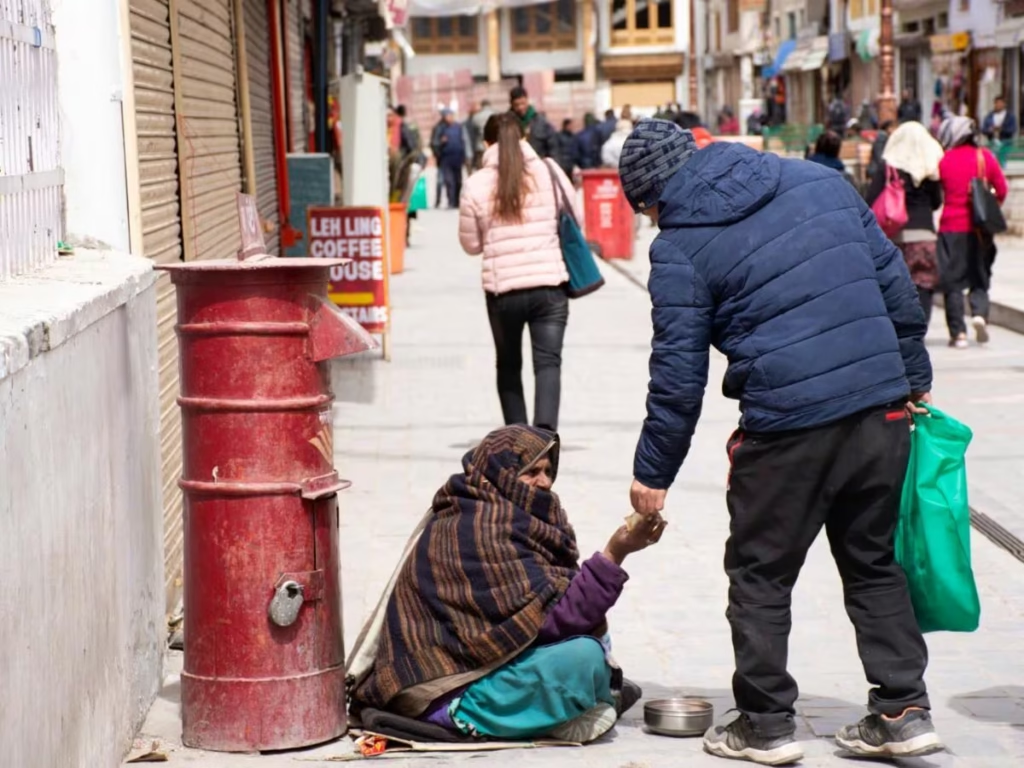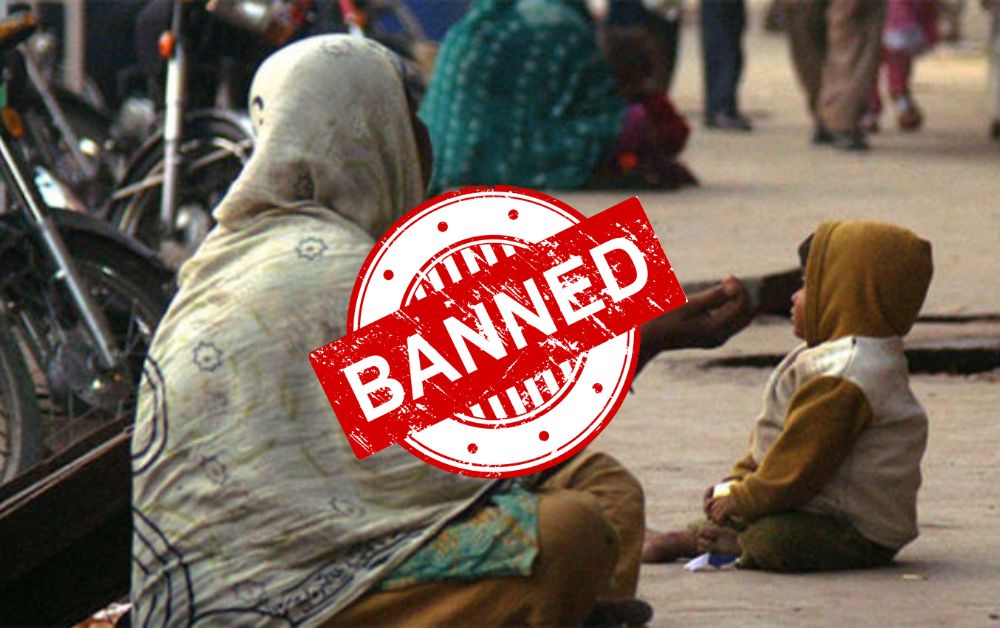Indore, a vibrant and growing city in Madhya Pradesh, has made a groundbreaking decision by becoming the first city in India to officially ban begging.Starting January 1, 2025, the law will treat giving money to beggars as a serious offence. Individuals who do so will face legal consequences, including the filing of a First Information Report (FIR). This initiative targets the growing problem of begging in the city, aiming to reduce the presence of beggars on the streets and discourage people from contributing to the issue by giving money.
The move comes as part of the city’s broader plan to tackle issues of poverty and social inequality, while also promoting a cleaner, safer, and more prosperous environment. Authorities believe that the Indore anti-begging ban will not only improve the city’s image but also help its most vulnerable citizens by providing them with opportunities for rehabilitation and self-reliance.
The Rationale Behind the Indore Anti-Begging Ban
Begging has become an increasingly visible issue in many Indian cities, including Indore. The problem is not just an eyesore for the citizens but also a hindrance to the city’s growth. Indore, with its rapid urbanization and growing economy, was witnessing an influx of beggars on the streets, causing inconvenience for both residents and visitors. The increasing presence of beggars made the streets feel less safe and less welcoming, which prompted local authorities to take action.
The aim of the Indore anti-begging ban is not to simply drive beggars off the streets but to provide them with better alternatives through rehabilitation programs. By penalizing those who support begging by giving money, the authorities hope to curb the practice and help those trapped in this cycle of poverty.
A Path to Rehabilitation: The SMILE Project
The SMILE project (Support for Marginalized Individuals for Livelihood and Enterprise) launched by the Union Ministry of Social Justice is a critical part of Indore’s plan to tackle begging. Unlike other programs that focus on merely removing beggars from the streets, the SMILE initiative focuses on rehabilitation. It provides support to marginalized individuals, helping them rebuild their lives through medical care, education, vocational training, and employment opportunities.
Under the SMILE project, people who rely on begging will be offered a safe and supportive environment where they can receive counseling, health services, and job training. The goal is to help them regain their independence and live with dignity, enabling them to contribute to society in a meaningful way. The project aims to provide long-term solutions, allowing individuals to break free from the cycle of begging and build a future based on self-sufficiency.
This project complements the Indore anti-begging ban, ensuring that those impacted by the ban receive the rehabilitation services they need, rather than simply being pushed off the streets.
Legal Repercussions of the Indore Anti-Begging Ban
Indore’s anti-begging ban strictly deters people from participating in or supporting begging. The law explicitly treats giving money to beggars as an offence, and authorities will lodge an FIR against anyone found violating it. Those caught giving money to beggars could face legal consequences, including fines and other penalties. The authorities hope that by penalizing those who support begging, they will create a deterrent effect and encourage people to find more constructive ways to help the marginalized.
Support and Rehabilitation Services
While the Indore anti-begging ban focuses on reducing begging, it also emphasizes the importance of providing rehabilitation and support services for those involved in begging. Authorities are working to ensure that adequate facilities, such as shelters, training programs, and healthcare services, are available to support those who want to leave begging behind.
The government’s efforts to provide rehabilitation services alongside the ban are intended to ensure that the move does not simply push beggars off the streets but gives them a real opportunity to improve their lives.
Public Reactions and Concerns
The anti-begging drive in Indore has generated mixed reactions among the public. Many citizens and social workers have supported the initiative, believing it will help create a cleaner, more dignified environment for everyone. They argue that the presence of beggars on the streets not only affects the city’s image but also perpetuates poverty and homelessness.
However, some critics have raised concerns about the implementation of the law. They fear that the Indore anti-begging ban could push vulnerable individuals further into hardship if proper rehabilitation programs are not in place. These critics believe that simply penalizing people for giving money to beggars may not address the root causes of begging, such as lack of education, healthcare, and job opportunities. They argue that a more holistic approach, focusing on poverty alleviation, is necessary to tackle the problem effectively.
Authorities have assured the public that comprehensive rehabilitation services will be in place before the ban is enforced. They have committed to working with NGOs and social organizations to ensure that those involved in begging have access to the support they need. The government also plans to run awareness campaigns to educate citizens about the new law and its objectives.
A Model for Other Cities
Indore’s approach to banning begging could serve as a model for other cities across India. The problem of begging is not unique to Indore, and many urban centers in the country face similar challenges. Indore’s comprehensive approach, which includes both the ban on begging and a focus on rehabilitation, could inspire other cities to take similar steps.
If successful, Indore’s efforts could lead to a nationwide shift in how India addresses issues of poverty, homelessness, and social inequality. By focusing on rehabilitation and providing marginalized individuals with opportunities for education and employment, other cities could follow Indore’s example and create more inclusive and self-sufficient communities.
Conclusion
Indore’s decision to ban begging marks a bold and innovative step towards creating a cleaner, safer, and more prosperous city. The Indore anti-begging ban, combined with the rehabilitative focus of the SMILE project, reflects a growing recognition that solving the issue of begging requires more than just punitive measures. It requires offering long-term solutions that empower individuals to live with dignity and independence.
As the city moves forward with this new initiative, it will be interesting to see how it impacts the community and whether it can serve as a model for other cities. Indore’s example highlights the importance of addressing both the symptoms and root causes of begging and demonstrates how a comprehensive approach can create real change. With its commitment to rehabilitation and self-sufficiency, Indore is paving the way for a future where dignity and opportunity are accessible to all.
Incorporating the Indore anti-begging ban as part of a larger rehabilitation strategy can create a transformative impact on the city, offering hope and opportunity to those most in need. For more information on the SMILE project and its objectives, visit Government of India’s SMILE Project.



